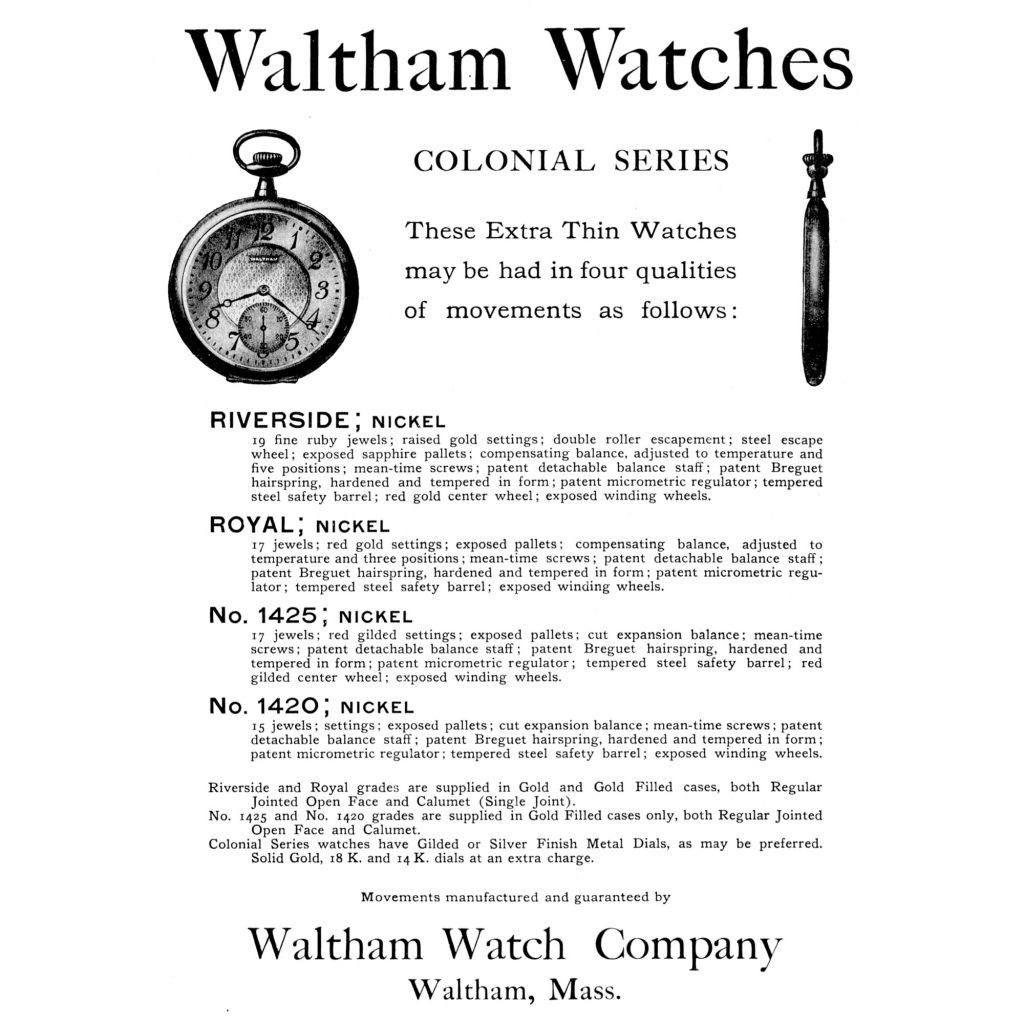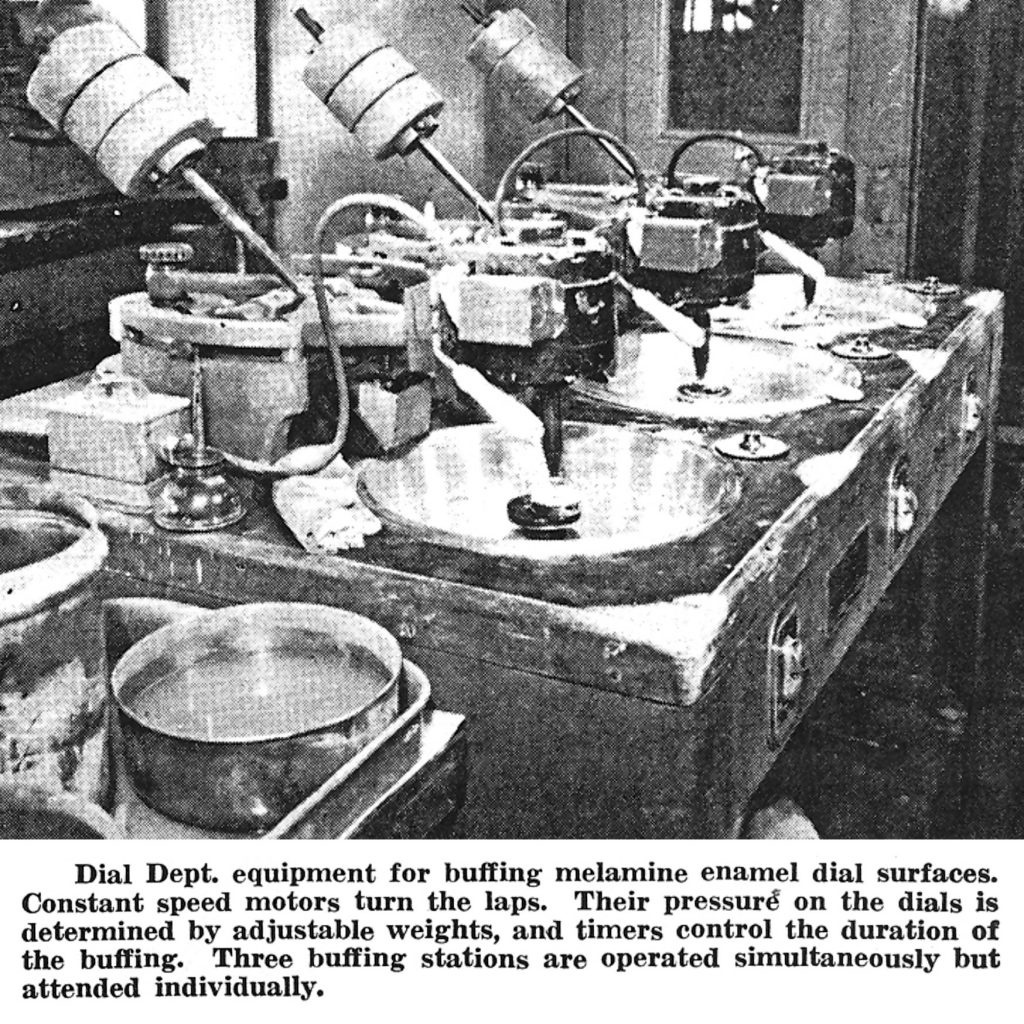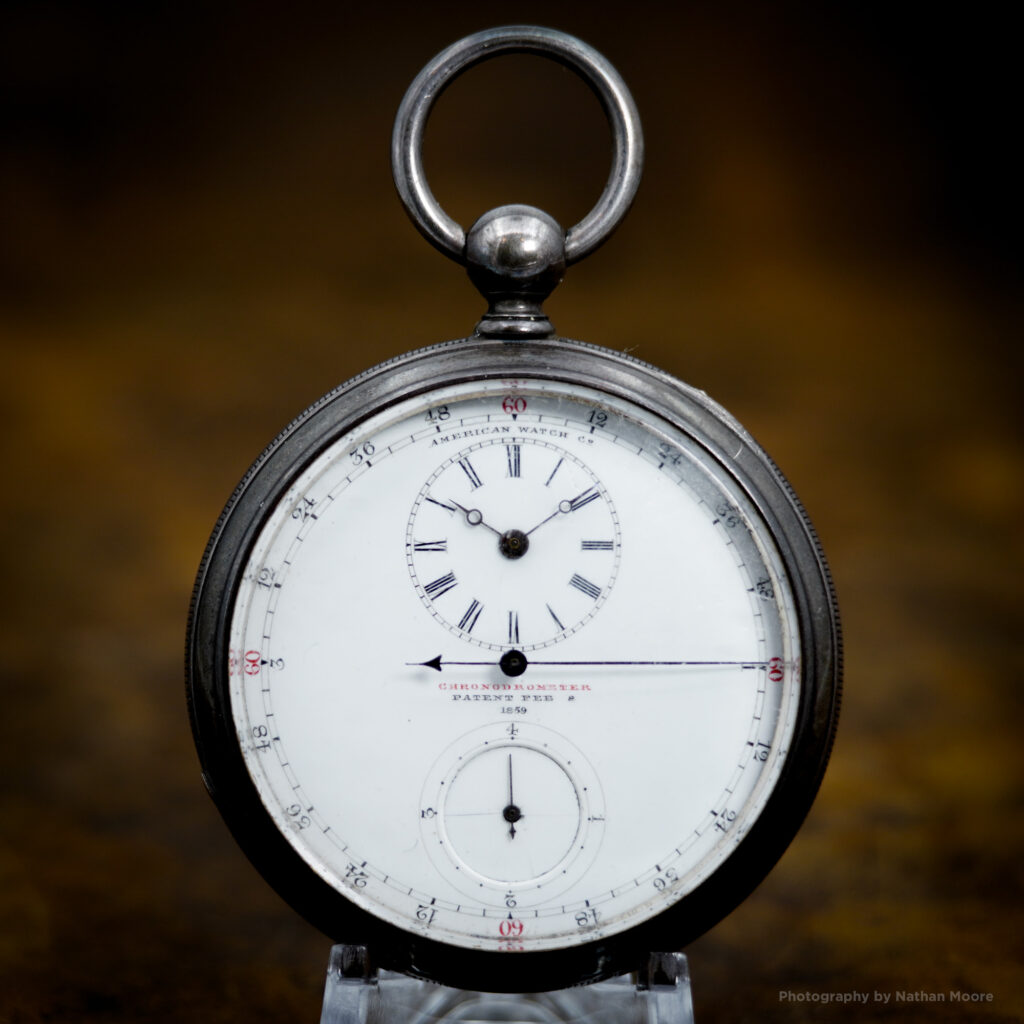Private Label Trade Names on American Pocket Watches: The Non-Magnetic Watch Company: Part 32: Initial Models Introduced to the American Market
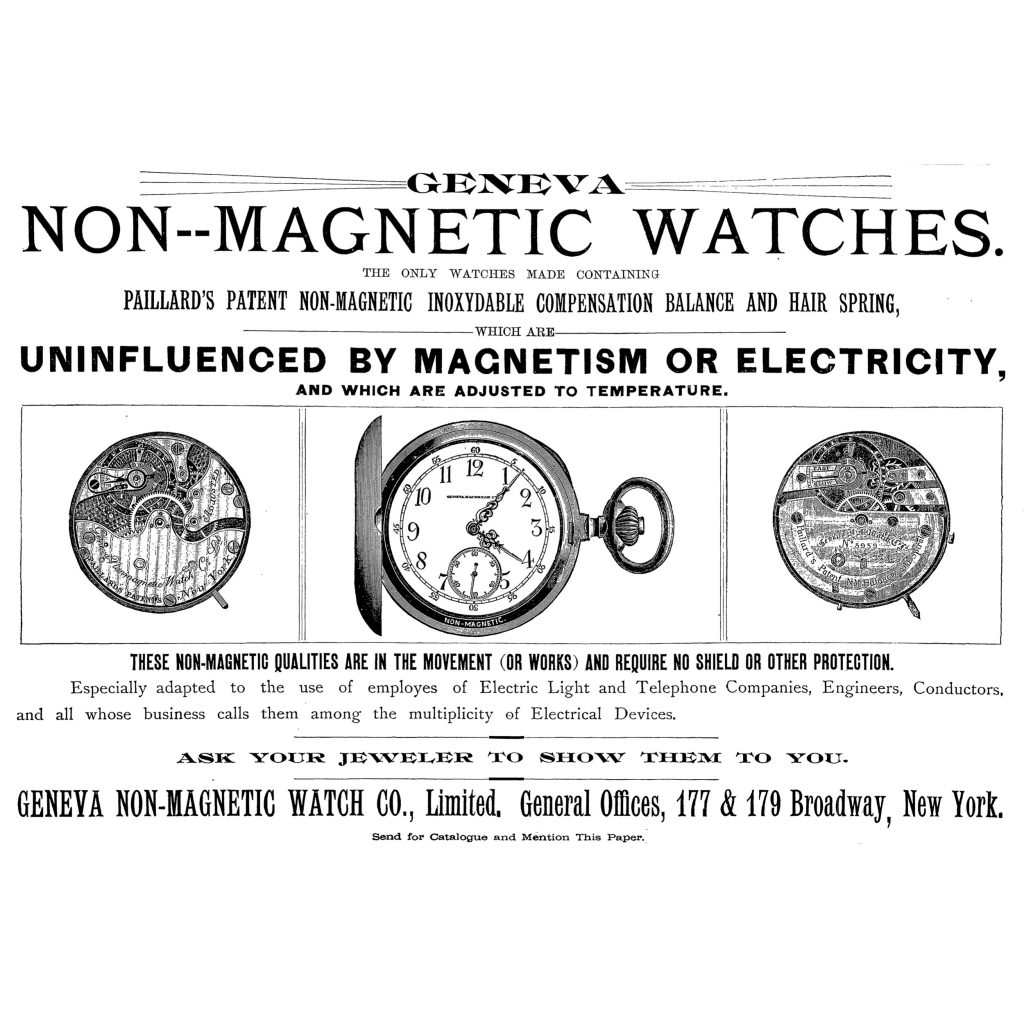
In February 1887, General advertisements for the Geneva Non-Magnetic Watch Company began appearing in the United States. However, most of these promotions did not include illustrations. The advertisements that were more illustrative only featured the dial-side of the watch. By August 1887, movement cuts began to appear in advertisements, exhibiting two primary models offered by the company for the American market.
These models represented a small subset of the production of the Geneva Non-Magnetic Watch Company at the time but were specifically designed for the American market.
One of the models, designated as “Model 1” in material catalogs, was utilized as a prominent design for higher-end production. The plates were characterized by a smooth wave-like contour, creating an aesthetic closer to movements manufactured by American watch factories. This design became one of the standard models used by the company and was subsequently patented by Charles Willis Ward on November 6, 1888.
The other model closely resembled other watches produced by Swiss watchmakers at the time. The plates were characterized by straight streamlined cuts with a more utilitarian aesthetic. This design was only used by the company for a very brief period of time, possibly due to the apparent Swiss appearance. As a result of the limited production, the company never patented this design.
It is possible this model was manufactured by Louis Bornand, the former master adjuster for Henri Capt. Bornand was listed as the manufacturing agent for the Geneva Non-Magnetic Watch Company in some 1887 advertisements before being replaced by J.J. Badollet and Leo Aeby.
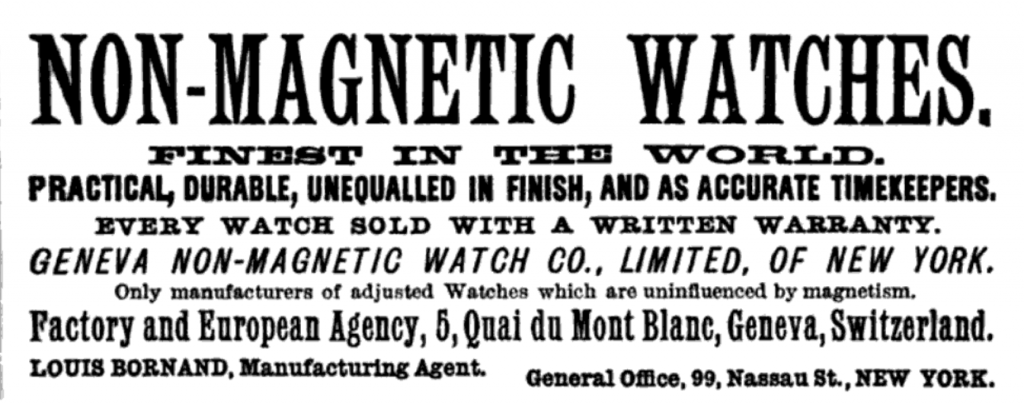
Bradshaw’s Monthly Continental Railway, Steam Transit, 1887
A letter published in The Printers’ International Specimen Exchange suggests Bornand was involved with the Geneva Non-Magnetic Watch Company as late as July 22, 1887.
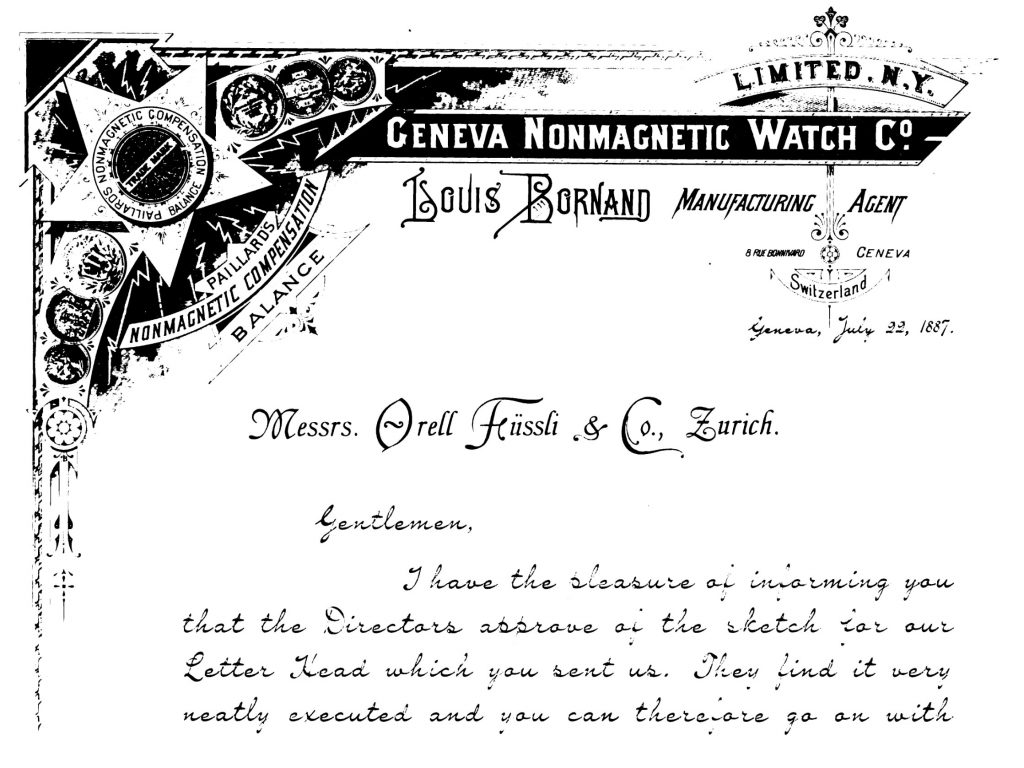
The company advertised heavily in trade publications representing industries where the influence of electromagnetism was a concern. An advertisement published in the September 3, 1887 issue of the Electrical Review noted, “Especially adapted to the use of employes of Electric Light and Telephone Companies, Engineers, Conductors, and all whose business calls them among the multiplicity of Electrical Devices.”

